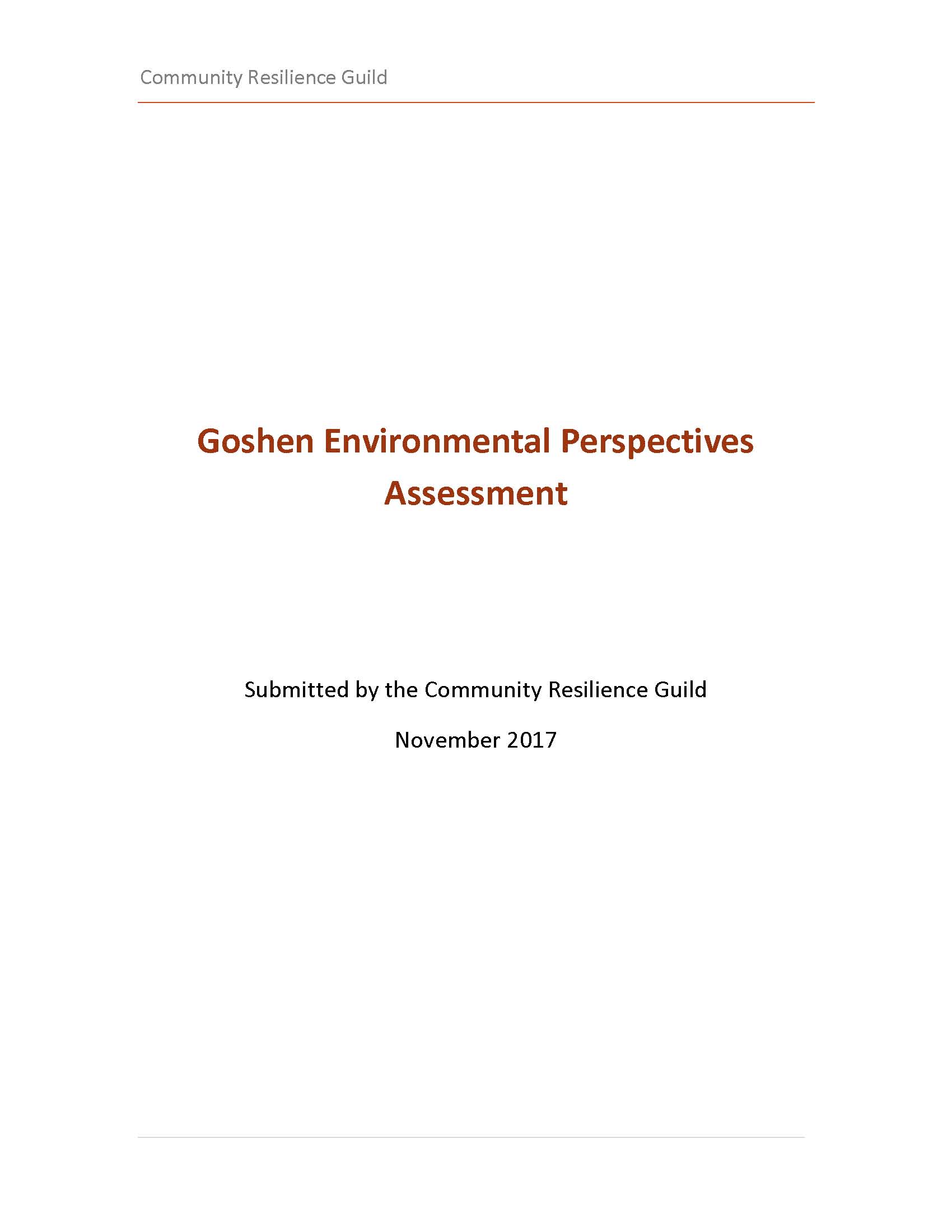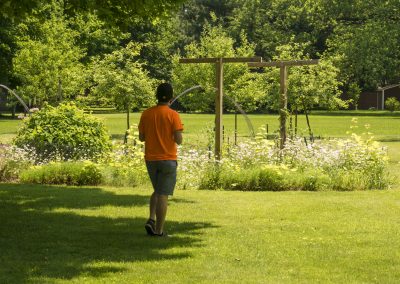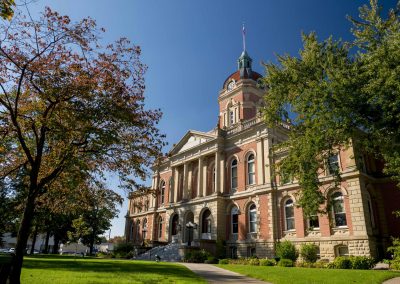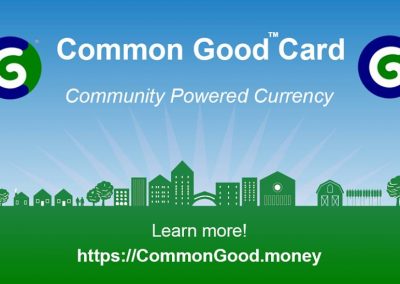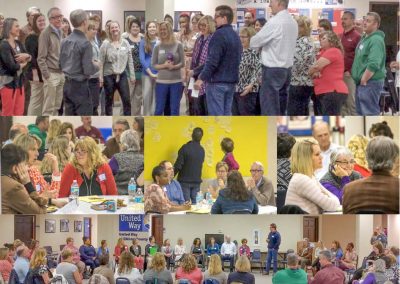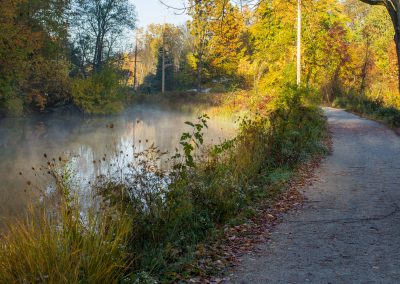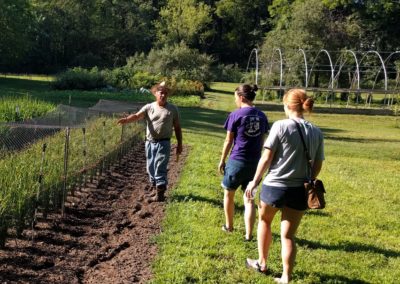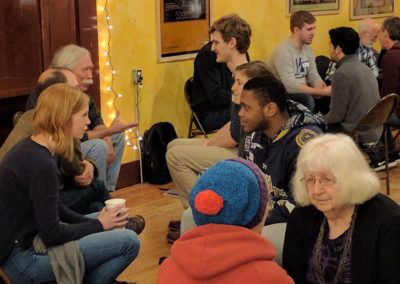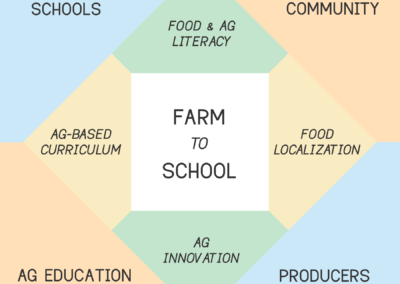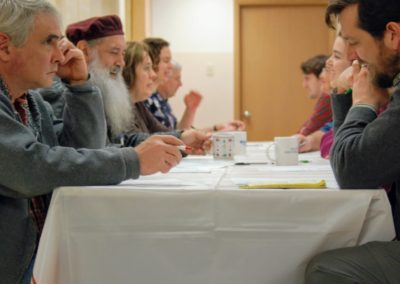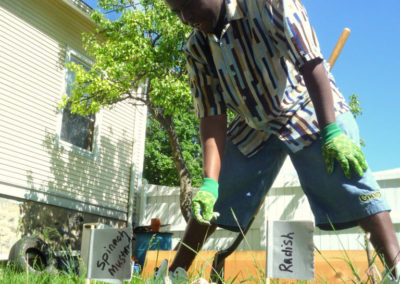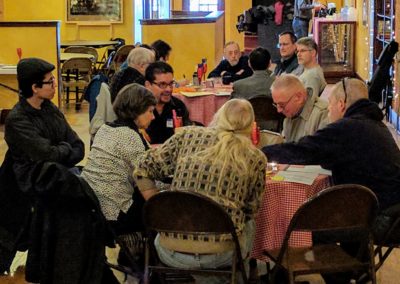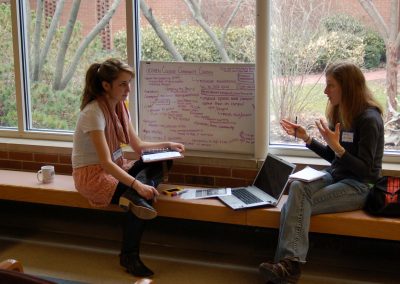Goshen Environmental Perspectives Assessment
The purpose of this study was to assess current activities, resources, issues, and perspectives related to Goshen’s overall environmental context. The report provides a snapshot of our context at this particular moment to help evaluate the need and opportunities for an Environmental Advisory Committee (EAC) to support the Mayor’s Office, the Goshen Parks Department, and other City of Goshen bodies who provide leadership and guidance on environmental issues.
The scope of work used to generate this report included:
- identifying stakeholder groups involved in local environmental activities;
- mapping key activities, programs, and resources;
- reviewing and cataloging pertinent reports, articles, plans, and other documents;
- interviewing government and community stakeholders; and
- researching best practices and models for forming an EAC.
This work built on previous studies to develop a conceptual framework for defining what we mean by “environment” in the context of forming an EAC. The City’s Comprehensive Plan and Community Vision provided useful categories for organizing the results of the mapping activities and research. In addition to the Assessment, we created a public online database available at community.resilienceguild.org/GEP-Assessment.
Outputs
Conclusions
Based on our interviews and research, we believe this report provides a thorough overview of Goshen’s environmental context that adequately represents the diversity of perspectives on environmental matters and the range of activities to be found in the community. The interview participants displayed a consistent level of awareness and understanding of environmental matters with an overall appreciative view of our current context. They recognized Goshen as a leading community with regard to taking responsibility for environmental issues and addressing them in constructive ways. Goshen’s investments in CSO’s, bike trails, and its urban forest were frequently cited as practical examples.
The many diverse issues, observations, and questions addressed in this study can be distilled as follows:
- Goshen can be proud of a wealth of natural resources and a history of successful initiatives to protect and develop them.
- The City’s environmental context cannot be understood separately from the economic, political, and social perspectives and values that shape our community and define the “common good”.
- Understanding the environmental legacy of Goshen’s industrial past and present and cultivating collaborative relationships with local businesses and organizations are essential strategies for insuring a more resilient future.
- The City of Goshen’s Comprehensive Plan and Community Vision provides an excellent foundation and guide for building a more sustainable community.
- By leading the region as an environmentally-conscious community, Goshen can continue to promote a high quality of life that attracts and retains the talent necessary for sustainable community and economic development.
These conclusions are of course just the tip of the iceberg for this broad study, just as the study itself only scratches the surface of the diverse perspectives continuing to shape Goshen’s environmental context. Rather than trying to submit a report with a conclusive “period” at the end, we have sought to “set the table” for a group of committed City personnel and community advisors to sit down to an ongoing exploration and dialogue about the environmental challenges and opportunities at hand.
Since much of this report deliberately uses the words of the community members themselves to convey the depth and diversity of Goshen perspectives on the environment and related issues, we’ll end with a few representative quotes that highlight some of the values, convictions, and questions most likely to influence the path ahead.
There are deeply economic, political, moral things we are facing. So I think [it’s important to help people] understand that it is complex, that it is not just about right thinking, that it is not even just about right actions, but it is about a humility of your connection to the complexity of the world around you. (Ryan Sensenig)
You can think of this all on a local scale. Then you’re assuming that the big decisions about coal, and the future of herbicides and pesticides, and all kinds of other things, really aren’t local decisions — those are big decisions that happen someplace else. Or you can make them local decisions, I suppose, and create a sense of advocacy for social change beyond our community.… I think I could go either way: do we become a community that advocates for something bigger than what happens here, or do we just work at getting our own house in order? (Glenn Gilbert)
I think you have to build that link between what you can see and touch locally, and what’s also good for the climate. So we’re not just doing all these things because we want to reduce greenhouse gases; we can do these things because we want to build a better community. … I do think that was the focus of the Comprehensive Plan; some of those things are just building a resilient community along the way. That’s the great benefit of doing these things like cleaning up brownfields and building bike paths, and having mixed-use type land use. (Mark Brinson)
I think we are at the stage right now that creating systems that are both good for people and the planet are easy to do. There’s still a lot of low hanging fruit. (Ryan Sensenig)
My perception is that most people are pleased to see the tangible assets like trails and Fidler Pond. Our water doesn’t appear to be polluted … and we don’t see smog. People are more concerned about noise pollution with trains than they are about air pollution, and that’s something that the City is looking to remedy. I have not heard an outcry of concern about environmental resources – more the opposite. People seem delighted about our parks and are willing to contribute their tax dollars without grumping about it to make those things happen. I was at the last budget meeting this past October and I think I was one of six people in the room from the community. People seem to have faith that the government is managing their resources well. If they are not, they show up. (Gina Leichty)
I think there’s a business case (for quality of place) because the whole concept of economic development is changing dramatically. It used to be ‘we need to have all these industrial parks, build roads and sewers, we need to have all this infrastructure in place so we can attract the industrial investment.’ … There’s still that thinking – not to say that we don’t need those things – but we’re not going to see that investment if the companies can’t get (the workers they need). So we’re seeing this big shift to talent attraction as an economic development strategy. ‘How do you attract people to your community?’ And I think Goshen is a good example of a community that, over a long period of time, has made those investments, which are now paying off. A lot of communities are looking seriously at Goshen and what’s happened here. (Mark Brinson)
When you look at the brand statement, ‘Common Good, Uncommonly Great,’ I think you see why this community is seen as a community that really has its act together. Whether it’s business or individuals, the ability to care about your community is the difference. People ask ‘why is Goshen able to do what it does?’ It’s really because we do things because it’s the right thing to do. And I think that’s what we look for in individuals; that’s what we look for in our business community; and it exists here in a way that you don’t see hardly any place else. That’s our strength. As long as we continue to do that, we’re going to continue to be a neat place.… Goshen has a love affair with its community, and we just need to keep that going. (David Daugherty)
I flat out love this community. It frustrates me to no end, but I love it to death. (Vince Turner)

